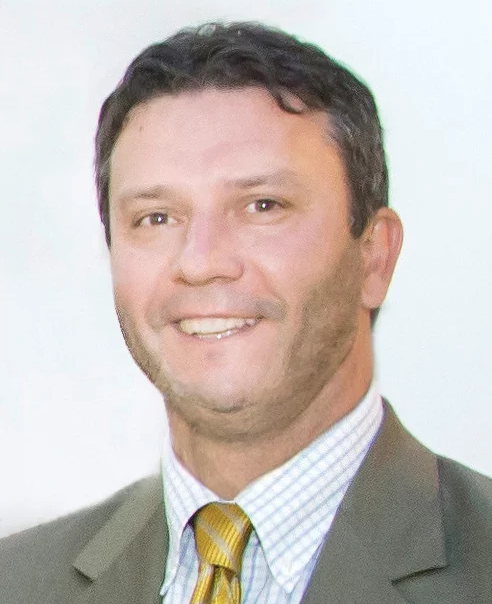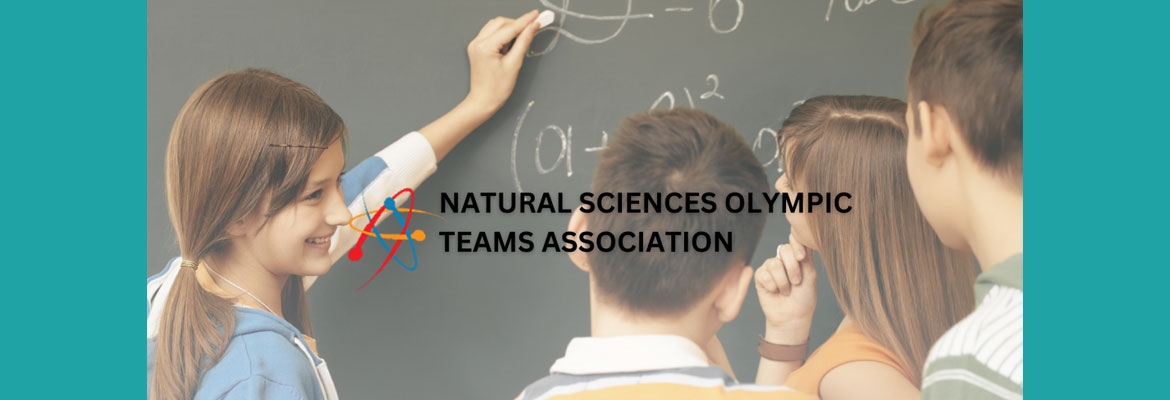The Natural Sciences Olympic Teams Association (NSOTA) is one of the organisations that we support through the Questers Giving Programme. We strongly believe that investing in talented young scientists is an investment in Bulgaria‘s future because they are the driving force behind the country‘s innovation, scientific excellence and economic prosperity.
Today we invited Alexey Hristov – Chairman of NSOTA, to tell us more about the efforts of the association, the initiatives and achievements, as well as the challenges that it has been facing.
Read what he shared with us:
 Hello Mr Hristov. Could you tell us a bit about yourself and what your experience in the field of science education is?
Hello Mr Hristov. Could you tell us a bit about yourself and what your experience in the field of science education is?
I was born in Vratsa in the early 70s of the 20th century. In the mid-90s I received a Master’s degree in Theology from the Sofia University “St. Kliment Ohridski”. As a student, I worked in various media and civil organizations. In 2001 I became a visiting researcher in the Georgetown University in Washington, D.C. studying “Nonprofit organisations and Civil Society”. When I returned to Bulgaria I got involved in the founding of the American Foundation for Bulgaria (AFB). In 2004 and 2005, we started to support the Olympic teams in Natural Sciences. In 2009, together with several leaders of the Olympic teams, we started their association. Since then, I am the Chairman of the board.
Tell us, how was the idea to establish the Natural Sciences Olympic Teams Association born?
Well, I briefly mentioned already, but I like joking that the father and the mother of the NSOTA were two American foundations - AFB and the America for Bulgaria Foundation (ABF). When ABF came to light with a 400 million USD endowment to be invested in Bulgarian civil society, I approached them and offered to fund our program in support of the Olympic teams. They gladly agreed and for that reason, we have established the NSOTA together with the team leaders of the Olympic teams with whom I worked for several years.
During all these years how many supervisors, teachers and students has the association worked with?
Well, I would not be precise to the digit, but several generations of student competitors, and in some cases many tutors, teachers and supervisors. For some teams, in Mathematics for example, there is the principle of one leader – four-year mandate, and with other teams - the leaders have not been changed for more than 20 years. But with all teams, there are at least a dozen teachers, lecturers, and tutors working with them, in order to be prepared for the medals that they win.
During the last more than 15 years, I had the privilege and honour to know in person most of the Bulgarian Olympic medallists in Natural Sciences and their trainers. So, to answer in numbers, we have worked with more than 50 professors and teachers, and at least 200 student medallists.
What are the highlights of the teams' training?
Well, it is a hard work on a daily basis for the students who manage to qualify for the Olympic teams. They first compete on a city level, then on the national, and then the best 10 in each field qualify for the extended list of the Olympic teams. Next, they have a few weeks of intensive training and after a series of tests, 5 or 4 team members are selected among them. In Chemistry, Biology, and Physics, there are practical tasks that are resolved in the “America for Bulgaria” Olympic Laboratories at the Sofia University. The teams in Astronomy and Astrophysics prepare their members in the mountains, where they observe the sky, and solve problems related to the stars.
What are your biggest challenges and how do you overcome them?
Over the years there were many different challenges, but probably the one thing that we cannot overcome for almost decades is to convince the Ministry of Education and Science to take in account in full the needs and concerns of the Olympic teams, their teachers, leaders and the students that compete. Some public servants at the highest level at the Ministry deny working with or assisting Non-profit organizations like NSOTA. The out-dated centralized way of work is still the standard of the Ministry. Sadly, it is not even complemented by sufficient funding.
Would you agree that an investment in Bulgarian high schoolers is an investment in the future?
Every support for education is an investment in the future. In the case with the most talented and highly awarded Bulgarian students, it is a very wise investment. There are many examples that I could give you, but I’ll share just one. Rumen Hristov, from Shumen, a gold and silver medallist in Informatics, got a scholarship to the Massachusetts Institute of Technology for his excellent results in many competitions. There, he received his Bachelor's, Master's and PhD degrees, and then he joined a start-up team with his professors to establish the company “Emerald”. Thus, he made it to 30 to 30 of the American Forbes Magazine.
How many medals were won in competitions supported by NSOTA in 2022?
The last year was the year with the best results for the Bulgarian Olympic teams in Natural Sciences for at least two decades. The Bulgarian Olympians won more than 70 gold, silver and bronze medals, and honorary certificates from international, Balkan, and European competitions.
And why is it important companies like Questers to support your mission?
For us, and the people involved in the system of finding and developing talented young students, every support is important. But the support from the industry is a sign that shows an understanding of the value of excellence in education and the importance of the achievements of the students, their teachers and tutors. I must also share that more and more Bulgarian and international companies from various sectors notice the success of the Bulgarian Olympic teams in Natural Sciences, and want to support us. We hope that the Bulgarian state in the face of the Ministry of Education and Sciences will do the same soon.
What is the future of the Natural Sciences Olympic Team Association?
I hope it will be bright and full of colours. Now seriously, during the last 10+ years we have invested funds, energy and love in working with the most talented and brightest young people in Bulgaria. Some of them started families and have kids, others created business and job opportunities or work for the biggest multinational companies, or teach at the best universities. In the last few years there were two Ministers who were medallists from International Olympiads. And now we even have a Prime Minister medallist – Nikolay Denkov. Since 2023 we have a new Board and new Executive Director, so we are optimistic for the future of the Natural Sciences Olympic Team Association.

